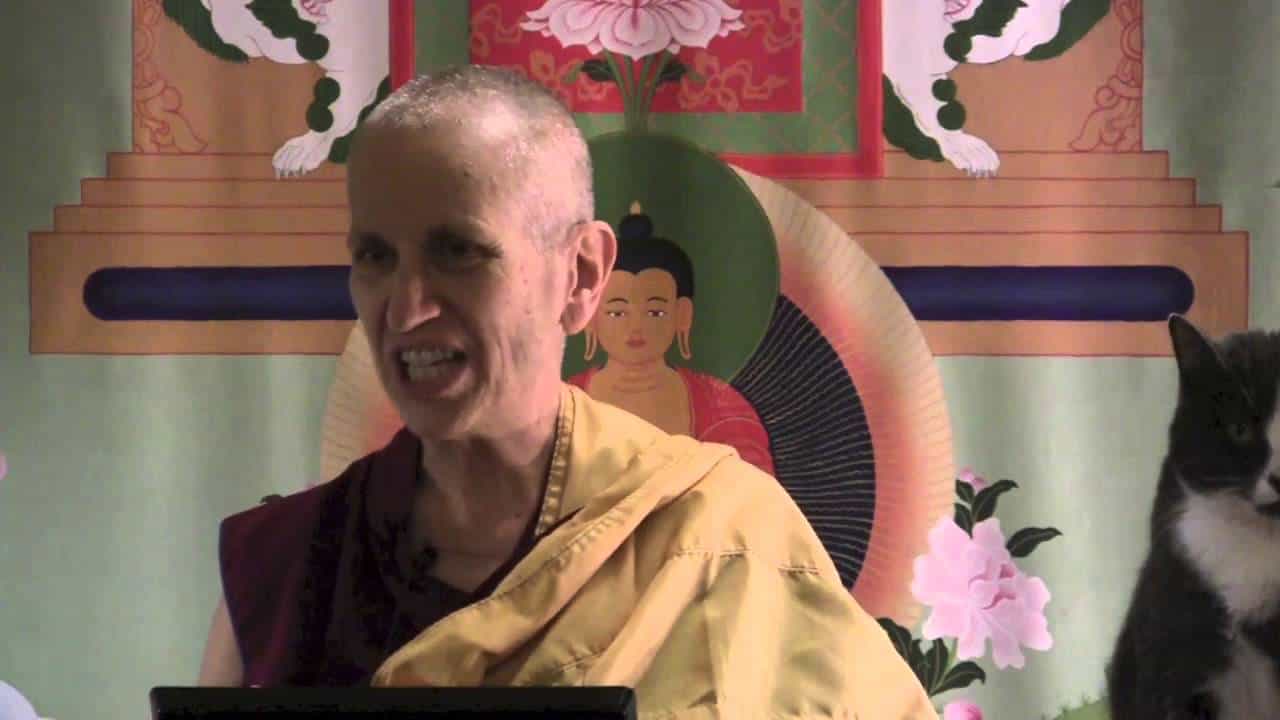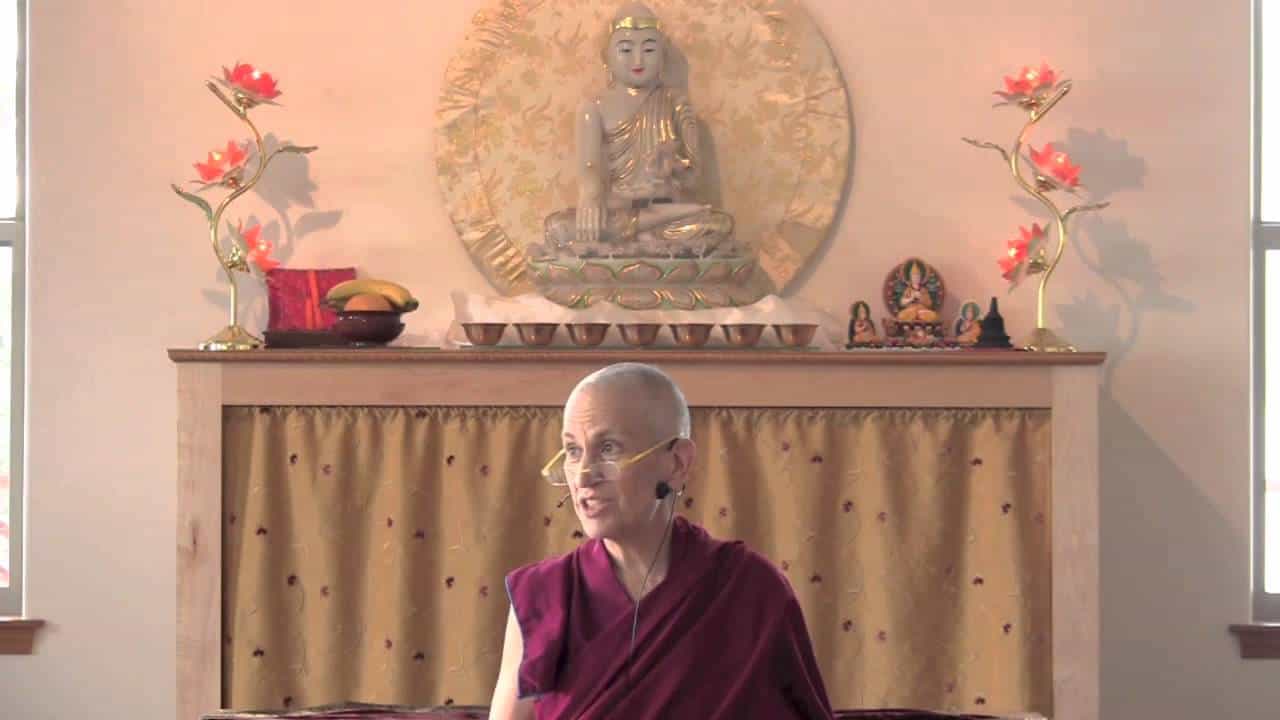Book launch: “Living with an Open Heart”
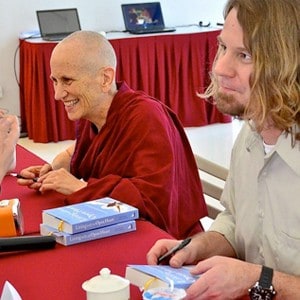
This article was originally published in the Singapore Buddhist magazine For You, January 2015 edition. The talk and book signing occurred on December 13, 2014, at Poh Ming Tse Temple in Singapore.
How do we cultivate compassion when faced by others who exhibit hostile, aggressive or obnoxious behaviour? Is compassion merely a sign of weakness, or could it be an indication of inner strength?
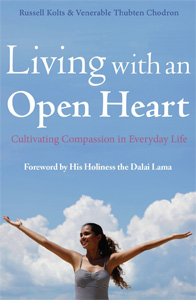
Buy from Amazon
These were just some of the issues raised during a recent book launch by Venerable Thubten Chodron and Professor Russell Kolts on 13 Dec, organised by Poh Ming Tse Temple and supported by Friends of Sravasti Abbey Singapore volunteers. The event celebrated the publication of the book, titled Living with an Open Heart: How to Cultivate Compassion in Everyday Life. One hundred copies of the book were also sponsored for free distribution through the kind support of Bro. William Chua, chairman of PMTT.
Both authors are experts in their respective fields of study. As founder and abbess of Sravasti Abbey in Newport, Washington, USA, Venerable Chodron has extensive experience in teaching Buddhist meditation and philosophy worldwide since 1977 when she was ordained. Active in prison work and interfaith dialogues, she is also well known for her warm and humorous teachings which are shared online in videos. She has authored numerous books on Buddhism. Prof. Kolts is a clinical psychologist and professor at Eastern Washington University, outside of Spokane, Washington. Founder of the Inland Northwest Compassionate Mind Center, he regularly conducts workshops on compassion-focused therapy and mindfulness practices.
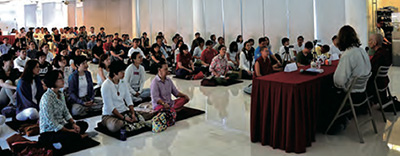
Book launch at Poh Ming Tse Temple. (Photo courtesy of Buddhist News.)
After opening with an insightful sharing about how the collaboration began, the authors discussed the challenges faced during the writing process. Such challenges ranged from their differences in opinion, due to the different perspectives they adopted, to the issues encountered when working with their UK editors, who had their fair share of opinions about what to include (and what not to) in the book. Yet, despite their different backgrounds, the authors are united in advocating the practice and application of compassion in everyday life.
Living with an Open Heart crystallizes the unified wisdom drawn from the authors’ experiences. Targeted at a wider general readership rather than a specifically Buddhist audience, the book provides a compelling path to personal transformation, integrating ideas and techniques from both Buddhism and Western psychology. This fascinating guide is organized into brief chapters that include thoughtful reflections and meditations, as well as personal anecdotes and specific tools to develop and deepen compassion. Each chapter offers inspirational guidance and creative insights to support the reader in internalizing and applying such compassionate habits. It is little wonder, then, that the Dalai Lama, in his foreword to the book, has praised it for enriching the conversation between modern science and Buddhism.
During the subsequent Q & A session, the authors answered a myriad of difficult questions, such as: how can compassion be effective, for instance, when encountering workplace or family conflicts, or when one meets with other emotionally draining situations? Venerable Chodron and Prof. Kolts outlined various practical strategies and meditative techniques to practise compassion. As an essential gateway to overcome destructive emotions, compassion serves to establish both personal happiness and positive relationships with others.
The event concluded with an autograph session, during which members of the audience had the opportunity to interact personally with the authors. It was a fitting celebration of the insights that can emerge when two of the most profound systems for understanding the mind—Buddhism and Western psychology—converse and collaborate. At the same time, it was an inspiring opportunity to honour the most significant and yet oft-neglected of human virtues—compassion (karuna).
The book offers easy-to-follow guidance on how to develop compassion in our daily lives. Here are some insights from the book: “Compassion can sometimes be seen as weak or a bit fluffy. It is neither of those. Compassion starts by looking at suffering and for that reason, courage is at its core. Sometimes people think compassion is a way of letting people off the hook, but again this is a wrong idea, as you will see.”
To learn more about compassion and how it can be brought into every moment of our lives, please read the book—it will help you live with an open heart, become joyful and peaceful, as well as foster good relationships. The book is available at Evergreen Cultural Services at #03-15/17 Pearls Centre and also on Amazon.com.
A video of the event can be found here.
Download a PDF of the article here.

